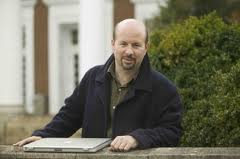Antarctic ice shelves not melting at all
June 25, 2012
By LEWIS PAGE | THE REGISTER | JUNE 25, 2012
Twenty-year-old models which have suggested serious ice loss in the eastern Antarctic have been compared with reality for the first time – and found to be wrong, so much so that it now appears that no ice is being lost at all.
“Previous ocean models … have predicted temperatures and melt rates that are too high, suggesting a significant mass loss in this region that is actually not taking place,” says Tore Hattermann of the Norwegian Polar Institute, member of a team which has obtained two years’ worth of direct measurements below the massive Fimbul Ice Shelf in eastern Antarctica – the first ever to be taken.
According to a statement from the American Geophysical Union, announcing the new research:
It turns out that past studies, which were based on computer models without any direct data for comparison or guidance, overestimate the water temperatures and extent of melting beneath the Fimbul Ice Shelf. This has led to the misconception, Hattermann said, that the ice shelf is losing mass at a faster rate than it is gaining mass, leading to an overall loss of mass.
The team’s results show that water temperatures are far lower than computer models predicted …
Hatterman and his colleagues, using 12 tons of hot-water drilling equipment, bored three holes more than 200m deep through the Fimbul Shelf, which spans an area roughly twice the size of New Jersey. The location of each hole was cunningly chosen so that the various pathways by which water moves beneath the ice shelf could be observed, and instruments were lowered down.
The boffins also supplemented their data craftily by harvesting info from a biology project, the Marine Mammal Exploration of the Oceans Pole to Pole (MEOP) effort, which had seen sensor packages attached to elephant seals.
“Nobody was expecting that the MEOP seals from Bouvetoya would swim straight to the Antarctic and stay along the Fimbul Ice Shelf for the entire winter,” Hattermann says. “But this behaviour certainly provided an impressive and unique data set.”
Normally, getting sea temperature readings along the shelf in winter would be dangerous if not impossible due to shifting pack ice – but the seals were perfectly at home among the grinding floes.
Overall, according to the team, their field data shows “steady state mass balance” on the eastern Antarctic coasts – ie, that no ice is being lost from the massive shelves there. The research is published in the journal Geophysical Research Letters.
This is good news indeed, as some had thought that huge amounts of ice were melting from the region, which might mean accelerated rates of sea level rise in future.

